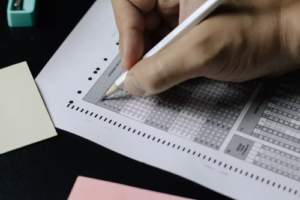
Preparing for an exam can be very stressful. This stress can turn into anxiety, uncertainty, and fear. All of these things can prevent you from succeeding and hinder your preparation. It is very important that you are as mentally prepared as possible so that you pass your exam. Failing an exam can be very upsetting, especially if the exam’s outcome is going to influence the rest of your life in some way.
This article will break down and explain a few important things that you need to remember to do before taking an exam so that you can be as prepared as possible:
Extensive Revision
In the weeks leading up to your exam, you need to make sure that you revise extensively. Extensive revision will increase your chances of passing your exam. Whether you are practicing for the NJ real estate practice exam or your finals in college, you should have no difficulty finding revision materials online. Most would recommend using online resources, but it is also a great idea to buy textbooks and use them too. Staring at a screen for long periods of time can hurt your eyes and give you migraines, which you don’t need when you’re preparing for a big exam.
Positive Attitude
A positive attitude is very important when you are preparing for an exam. If you don’t approach your exam with a positive attitude, then you could mess everything up. If you go into an exam negatively, then this negativity could influence the way that you answer questions and finish the exam. Some experts recommend meditation in the lead up to an exam, in order to focus and settle your mind. You also need to make sure that you drink lots of water, get lots of sleep, and keep your body as healthy as possible.
Preparation
On the night before your exam, you need to make sure that you check your revision notes and prepare your stationery and other equipment. Some examinations will require you to bring your own stationery, so keep this in mind. Others will prepare the stationery for you and provide you with a pencil [and calculator, if necessary]. It’s good to find out beforehand so that you don’t end turning up without a pen or pencil. You can usually find out by speaking to your college, school, or the examining board. This information should also be available on the information sheet or email that you received confirming your examination’s date.
Adequate Sleep
The night before your exam, you need to make sure that you get enough sleep. It’s natural to have difficulty sleeping before a big exam, but you need to do your best to get enough sleep. If you attend your exam exhausted and unable to concentrate, your chances of making a mistake or not completing the exam to the best of your ability increase massively. If you speak to your doctor, you may be able to get a sleeping aid to help you to sleep the night before your exam, although bear in mind sleeping pills often leave people feeling groggy the next morning.
Dress Comfortably
Unless you are attending an examination for a job, you should dress comfortably. If you are attending an examination for a job, then you should dress formally. Otherwise, you can likely turn up in sweatpants and a rugby shirt. Dressing comfortably will help you to focus on your exam. If you are wearing a rigid suit, then you will be uncomfortable, and this discomfort will ultimately impact the way that you answer the exam questions. With that said, make sure to check if the examination has a dress code beforehand.

Eat Right
On the morning of your exam, you need to make sure that you have an appropriate breakfast. You need something light and filling, that will give you energy and keep you going, but not weigh you down. Most experts recommend porridge, water, and fruit. This is a breakfast that will give you energy throughout the day but won’t leave you feeling full and lethargic. Porridge is also very easy to eat. It’s likely that on the morning of your exam, your nerves will be running high, so you probably won’t want to eat a large breakfast.
Warm-Up
Many experts also recommend warming your brain up in the hours leading up to your exam. You can do this by doing revision tests, as well as playing mentally stimulating games. Warming up your brain will help you to avoid brain fog during your exam. You could even exercise. You should also drink lots of water, to keep yourself hydrated. Dehydration can negatively influence the way that you respond to questions in your examination. Most exams will allow you to bring a bottle of water into the hall. If not, then drink lots beforehand.
Energy Snacks
In addition to warming your brain up, experts also claim that you should take a few snacks with you to the exam. You may not be able to eat them during the examination, but you can beforehand. Try to avoid energy drinks, but energy bars are okay. These bars slowly release energy in the hours following consumption. They will help to keep you alert during your examination. Energy snacks are usually very cheap, which makes them a great option for keeping yourself awake. You can buy them in most sports stores or gyms.
Keep Calm
When you arrive at your exam location, you need to keep calm. It’s easy to let your mind run away, but you need to reign it in and calm it down. Try to focus on the journey and not the final destination. Lots of people mess up their exams because they panic about passing or failing. Instead, the best way to approach an exam is to focus on the matter at hand and nothing more. One step at a time. Keep yourself calm and focused. If you are panicking, then practice some breathing techniques and calm yourself down.
If you are going to take an exam, then you need to prepare. If you do not prepare, then you will not stand a chance at passing. Follow this article’s guidance, and you should be able to conquer your upcoming exam.








 The 2024 virtual Men’s Round Table will be held Q4, 2024, date TBD.
The 2024 virtual Men’s Round Table will be held Q4, 2024, date TBD.













